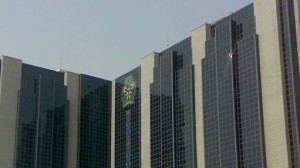
The Central Bank of Nigeria (CBN) sold yuan at a range of N49-N51 at its first auction of the Chinese currency, traders said, two months after it agreed a $2.5 billion swap with Beijing.
The auction, which traders said saw yuan sold for immediate and for 15-day settlement, is part of efforts to encourage the use of an alternative trading currency to the U.S. dollar.
Nigeria imports heavily from China and the CBN met with businesses prior to the auction to familiarise them with using yuan.
The OPEC member suffered severe dollar shortages after prices for crude oil, its top export and main source of foreign exchange, plunged in late 2014, prompting the introduction of capital controls in 2015.
It now has multiple exchange rates against the U.S. currency and has been selling the dollar on the interbank market to boost liquidity after floating the naira for investors.
In May the apex bank signed a three-year currency swap deal with the People’s Bank of China to facilitate trade between the two countries and boost its reserves.
At last week’s auction, some banks got as much as 60 percent of the yuan amounts they applied for, while one trader said his bank got 5 percent. Traders said the volume sold was based on the price quoted for the yuan, also known as the renminbi.
“From the details … it is more beneficial for customers who import raw materials, machinery and agricultural products from China to source foreign currency through Renminbi,” one Nigerian lender said in a note to clients.
It added that the implied naira rate made yuan slightly cheaper to purchase than dollars, but added that it was early to say as this was the first auction.
Nigeria is Africa’s biggest nation by population and its largest economy due to its oil exports, but it lacks a manufacturing base and so relies on imports — mainly paid for in dollars — to serve its consumption needs.
It has tried several options to curb the resultant pressure on the naira, but some will not show an effect for some time.
The CBN currently auctions dollars at a range of N330-N350, traders said.
The naira trades at around N362 on an over-the-counter system used by lenders while the unit is quoted at around N305 per dollar on the official market, supported by central bank’s regular intervention.
Agency Report